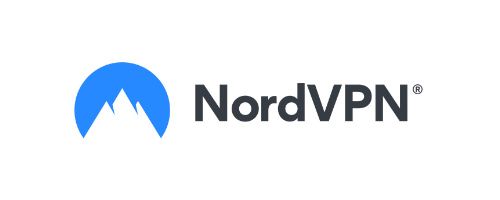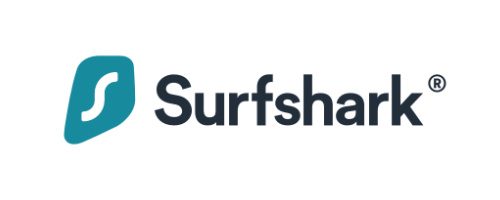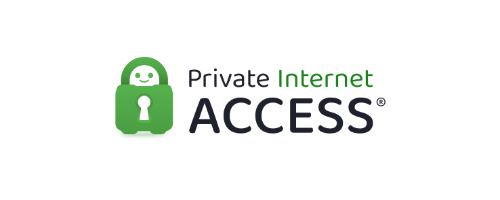Virtual Private Networks, commonly known as VPNs, have become a crucial tool for securing internet privacy and bypassing geo-restrictions. Despite the exponential growth in their popularity, especially among privacy-conscious users, one question often arises: Why are VPNs so expensive?
The VPN providers justify their pricing by emphasizing the increasing costs of implementing robust security measures, maintaining sophisticated infrastructure, and advanced features they offer.
Table of Contents
👋 This post contains affiliate links, and I may earn a commission at no extra cost to you.
The costs associated with running a VPN service are not always evident. They include maintaining high-speed servers worldwide, data center costs, implementing the latest encryption protocols to ensure user data security, and frequent software updates.

These factors contribute to the overall cost of providing a VPN service that is reliable, secure, and user-friendly. Premium VPNs also have extra layers of security, such as kill switches and multi-hop connections, which gives users peace of mind but also makes the overall cost higher.
Key Takeaways
- VPN costs are influenced by infrastructure, security protocol updates, and server maintenance.
- High-quality VPN features justify premium pricing for enhanced performance and security.
- VPN providers offer varying pricing plans to balance affordability with the benefits of premium services.
Best Value VPNs Compared
Let’s take a look at the table below and compare the prices for the best valued VPN’s out there. Please note that VPN pricing fluctuates a lot during the year. These are the companies that offer the best value VPN pricing at the time of publication.
| VPN Service | Monthly | 1 Year | 2 Years | 3 Years |
|---|---|---|---|---|
| Surfshark | $10.99 | $47.88 | $55.72 | N/A |
| NordVPN | $12.99 | $67.35 | $102.33 | N/A |
| CyberGhost | $12.99 | $83.88 | $56.94 | N/A |
| PIA | $11.95 | $39.95 | N/A | $79 |
Understanding VPNs

Special NordVPN Offer!
Starting at just $2.99/month!
Get VPN protection from NordVPN, one of the most reliable VPN companies in the world!
When considering the elements of cybersecurity, it’s key for you to understand what a VPN is, how it functions, and the different protocols it utilizes to secure your online activities.
What Is a VPN?
A VPN, or Virtual Private Network, is a service designed to enhance your online privacy and security. It acts as a tunnel for your internet connection, encrypting your data transmission to prevent unauthorized access.

How VPNs Work
VPNs work by routing your internet connection through a server operated by the VPN provider. Your data is encrypted before leaving your device, providing an added layer of security. This process helps mask your IP address and makes it difficult for third parties to track your online actions or determine your location.
Types of VPN Protocols
The specific way a VPN encrypts and transmits your data is defined by the VPN protocol. Notable protocols include:
- OpenVPN: An open-source protocol that offers a good balance between security and speed.
- IKEv2: Stands for Internet Key Exchange version 2, preferred for its ability to automatically re-establish a VPN connection when you switch networks.
- WireGuard®: A newer protocol praised for its simplicity and high-speed performance.
Choosing the right VPN and protocol depends on your specific needs, be it for enhanced privacy, bypassing geo-restrictions, or secure file sharing.
The Cost Factors of VPN Services

The Best VPN Deal for 2024!
82% off + 2 Months Free
When you think about how much it costs to run a VPN service, it’s easy to understand why they might cost more than you expected. The cost is a direct reflection of the technology and security measures needed to keep a reliable and private online service.
Infrastructure and Technology
VPN services demand a robust infrastructure involving high-speed servers and secure connections. To provide you with a seamless internet experience, VPNs must utilize advanced hardware capable of handling large volumes of data while ensuring low latency. Investments in physical servers and the technology to operate them drive up the cost for providers.

Security and Privacy Features
Security and privacy are hallmark features of any reputable VPN. Comprehensive security measures, including encryption protocols and no-logs policies, require ongoing development and updates. Continual investment in security ensures that your private data remains confidential on VPN servers, and protects against evolving cyber threats.
Server Maintenance and Bandwidth
The upkeep of servers is an ongoing responsibility that incurs significant costs. Regular maintenance ensures optimal performance and accessibility. Moreover, bandwidth costs can be substantial, as VPN services must cater to a high volume of traffic without compromising on speed. Purchasing or leasing bandwidth from internet service providers is a major operational expense for VPN companies.
Analyzing VPN Pricing

PIA Special Deal
82% OFF
We have secured a special and awesome deal for our PrivacyTutor readers!
When considering a VPN, you’ll encounter a range of pricing options influenced by various factors, from the type of service to the infrastructure required. Let’s dissect how much does a VPN cost and these elements to understand what you’re paying for and why.
Free vs Paid VPN Services
When you opt for a bunch of free VPN options, understand that while it may seem cost-effective, these services often come with limitations. For instance, you might face data caps, slower connection speeds, and a limited number of servers to choose from. More concerning is that some free VPNs may compromise your privacy by tracking your online activities or displaying ads. In contrast, paid VPN services typically offer robust encryption, numerous server locations, and additional features like kill switches, emphasizing better security and performance.
Subscription Plans and Pricing
VPN providers usually offer several subscription plans Free and average VPNs try to cater to different needs like streaming services. Commonly, you’ll find monthly, semi-annual, or annual options. Longer commitments often come with significant discounts, reducing the monthly cost. For instance, a monthly plan might be priced at $10, but an annual commitment could bring it down to an effective $6 per month. This pricing method allows users to choose a plan that balances cost against the flexibility of a shorter-term commitment.
Reasons for High VPN Costs
The expensive nature of VPNs can be attributed to the resources required to maintain a high-quality service. VPN costs include the maintenance of global server networks, strong security measures, and consistent customer support. Scalability is crucial because as the user base grows, so does the demand on servers, which involves substantial ongoing investment. Moreover, leading VPN providers invest heavily in keeping their services updated and secure against evolving cyber threats. Such operational expenses influence the final price you pay for your VPN subscription.
Performance and Quality Considerations
When figuring out why VPNs cost more, it’s important to think about how much they cost and how well they work. Your experience depends on factors like speed, availability of servers, and the strength of support.
Speed and Server Availability
Your VPN’s performance is largely determined by its server network. A premium VPN provides you with access to a substantial number of servers worldwide. More servers mean you’re likely to find one close by, leading to better download and upload speeds as your internet traffic has a shorter route. For example, VPNs invest in scaling server infrastructure to offer low latency connections, which is one of the aspects that increases their cost.
Streaming and Torrenting Capabilities
A major reason you might opt for a more expensive VPN is for enhanced streaming and torrenting capabilities. High-quality VPNs offer optimized servers that support high bandwidth activities, ensuring you can stream your favorite shows in HD or 4K without buffering. Additionally, they uphold strong protocols to bypass geo-restrictions and maintain speed even when transferring large files via torrenting.
Customer Support and Reliability
Finally, consider the level of customer support and reliability. High-end VPNs typically provide 24/7 customer service, ensuring that any disruption to your service can be promptly addressed. This reliability is crucial when you depend on a VPN for secure and continuous internet access. The consistent maintenance and upgrading of their network infrastructure and customer support avenues contribute to the overall cost of the service.
Additional Benefits of Premium VPNs
A Premium VPN goes far beyond basic connectivity; it ensures robust protection and offers unique services. As you explore the options, consider how the enhanced features of a premium VPN can serve your specific needs.
Advanced Security Features
Premium VPNs typically offer military-grade encryption, ensuring that your online activity is shielded from prying eyes. This level of encryption makes it nearly impossible for hackers or surveillance agencies to decipher your private data. Another key feature is the kill switch, which immediately halts your internet connection if the VPN drops, safeguarding your data from accidental exposure.
Enhanced Anonymity and Privacy
The value of your anonymity and online privacy is immeasurable. Premium VPNs offer options such as dedicated IP addresses, which are unique to you and not shared with others. This feature not only enhances privacy but also reduces the chance of blacklisting or blocking since the IP isn’t shared with other potentially malicious users.
Exclusive Offers and Services
By choosing a premium VPN, you gain access to exclusive offers and services. Some providers offer unlimited bandwidth and high-speed servers that can enhance your streaming and browsing experience. Additionally, premium services might include personal customer support, access to a wider range of server locations, and the option to connect multiple devices simultaneously.
By investing in a premium VPN, you’re not only ensuring your security and privacy online but also opening up a realm of services tailored to elevate your online experience.
Making VPNs Affordable
Choosing the right VPN doesn’t have to break the bank. This section will guide you through finding a VPN that fits your budget, ensuring you get the most value for your money, and taking advantage of discounts and offers.
Choosing the Right VPN for Your Budget
When selecting a VPN, compare the features of budget-friendly options like Surfshark, which often provides competitive pricing, with those of Private Internet Access, known for its balance of price and performance. Don’t overlook the importance of researching each VPN’s offerings—NordVPN and CyberGhost are other notable names that deliver high-quality services without exorbitant costs.
- Surfshark: Offers low monthly rates with robust features.
- Private Internet Access: Combines reliability with affordable pricing tiers.
- NordVPN: Known for frequent special deals.
- CyberGhost: Provides various plans to suit different budgets.
Identifying Value for Money
Value is about more than just the lowest price. Look for a VPN with a no-log policy, high-speed servers, and strong security practices. Both NordVPN and ExpressVPN are known for their top-tier features, but it’s essential to assess whether these align with your usage needs. You might find that Surfshark offers a compelling array of features at a fraction of the cost, thus representing a larger value for your investment.
- Features vs. Price: Match your needs with the features provided against the price.
- Long-term vs. Short-term: Consider the overall cost spread over time rather than just initial pricing.
Utilizing Discounts and Offers
Keep an eye out for discounts and promotional offers, especially during holidays or special sale events. Payment options may also offer indirect savings; may VPN providers like Private Internet Access accept Bitcoin, which could be advantageous if you already hold cryptocurrency. Additionally, consider yearly plans over monthly for long-term savings—CyberGhost and NordVPN often discount their annual or multi-year plans significantly.
- Promotional Periods: Black Friday, Cyber Monday, and New Year often have the best deals.
- Payment Flexibility: Use of credit cards, Bitcoin, or other payment methods might provide additional discounts.
The Future of VPN Pricing

As you look ahead to 2024, the VPN market continues to evolve, directly influencing ‘how much does a VPN cost’ for these services. Factors such as market trends, technical progress, and your expectations as a user will shape the pricing landscape.
Market Trends and Competition
The VPN market is exceedingly competitive, with numerous providers vying for your attention. As new players enter the fray, you can expect some fluctuation in pricing strategies. Economies of scale could potentially lower costs, enabling providers to offer more attractive pricing to you. On the other hand, providers who offer niche services or superior privacy features might maintain higher prices due to their specialized appeal.
Technological Innovations
Innovation in the VPN industry often leads to additional features, such as improved encryption or new protocols that enhance your online privacy. However, these advancements might also lead to increased costs for providers, which can get passed down to you. Eventually, as technologies mature and become more widespread, the costs associated with them are likely to decrease, reflecting in the pricing you see.
User Demand and Expectations
Your expectations as a customer play a crucial role in the pricing dynamics. As you demand a more seamless experience, with high-speed connections and advanced features, VPN providers might adjust their prices to reflect the increased value offered. However, with an informed customer base, and greater transparency, you might also witness competitive pricing that aligns more closely with customer value rather than just overheads and profit margins.
Frequently Asked Questions
When considering a Virtual Private Network (VPN) service, you may have questions about the cost. Below are some specific answers to frequently asked questions that delve into the pricing of VPN services.
What factors contribute to the high cost of some VPN services?
VPN pricing can be influenced by several factors including server infrastructure costs, the quality of encryption, bandwidth, customer support, and additional features like kill switches or the number of simultaneous connections allowed.
How do the prices of premium VPN services compare to free options?
While premium VPNs cost money, free VPNs might compromise your privacy by collecting and using your data. Premium VPNs typically offer stronger security and do not rely on user data for revenue.
What is the typical subscription cost for a VPN on a monthly basis?
The monthly cost for a VPN service can vary widely. You might expect to pay anywhere from a few dollars to around $10 or more per month, depending on the service and subscription length.
How does the price for a VPN service vary for individual versus corporate use?
Corporate VPNs often have additional features like dedicated servers and full-time customer support, which can result in higher pricing compared to individual use. Individual users can find more competitive pricing and discounts for longer subscription commitments.
Are the benefits of a paid VPN service worth the investment?
In most cases, the benefits of a paid VPN, such as improved security, anonymity, and access to geo-blocked content, justify the investment over a free version.
In what scenarios might a free VPN be sufficient, and when is it advisable to opt for a paid version?
A free VPN might be sufficient for occasional basic web browsing. However, for advanced security, streaming, or sharing sensitive information, a paid VPN service is advisable due to its reliability and robust security features.






